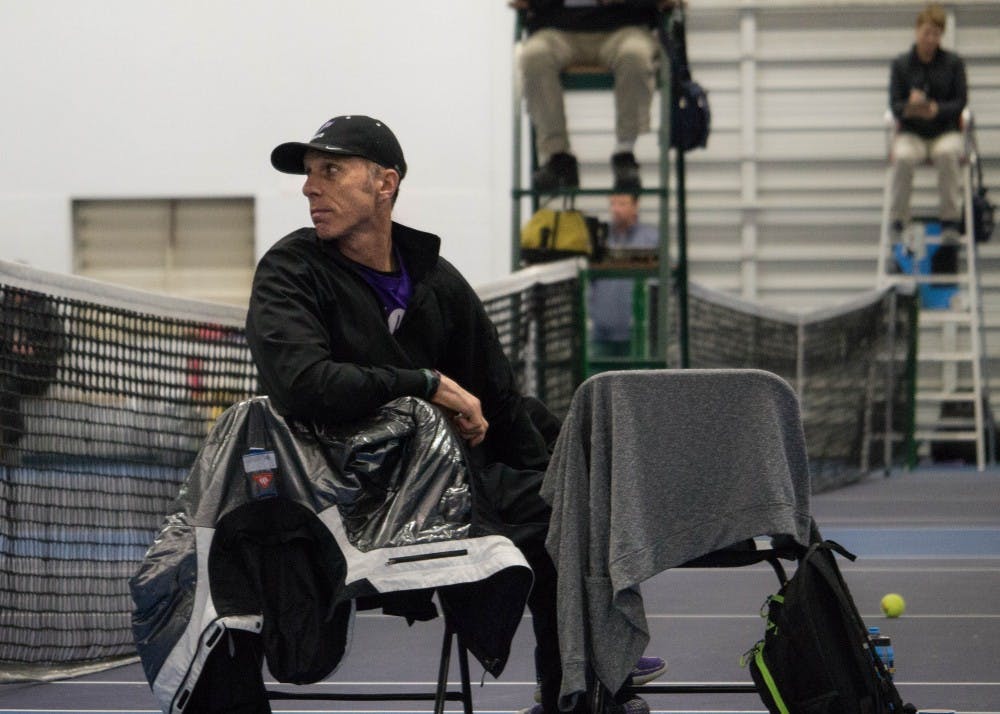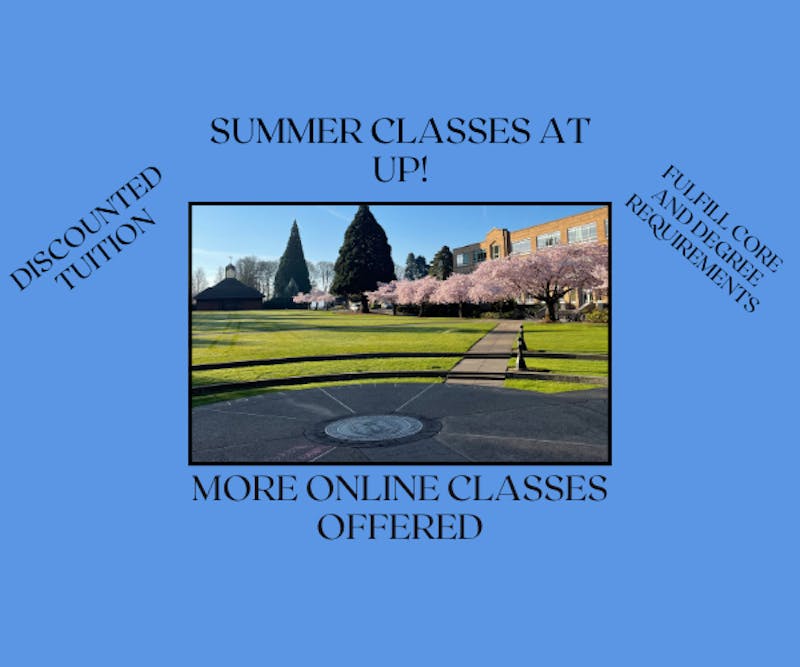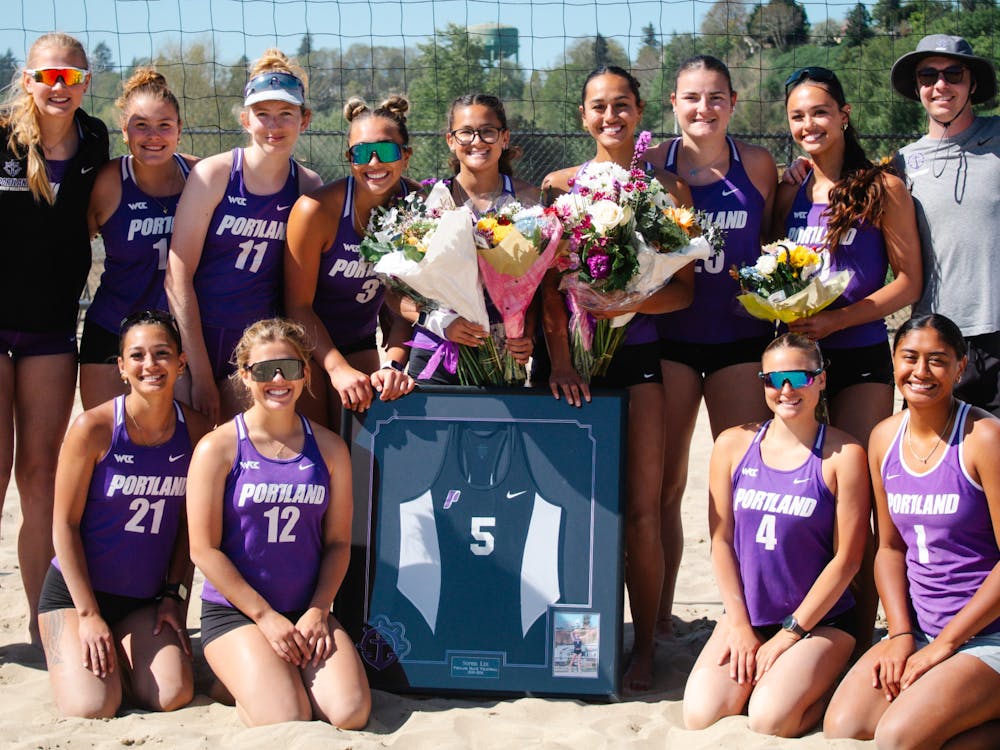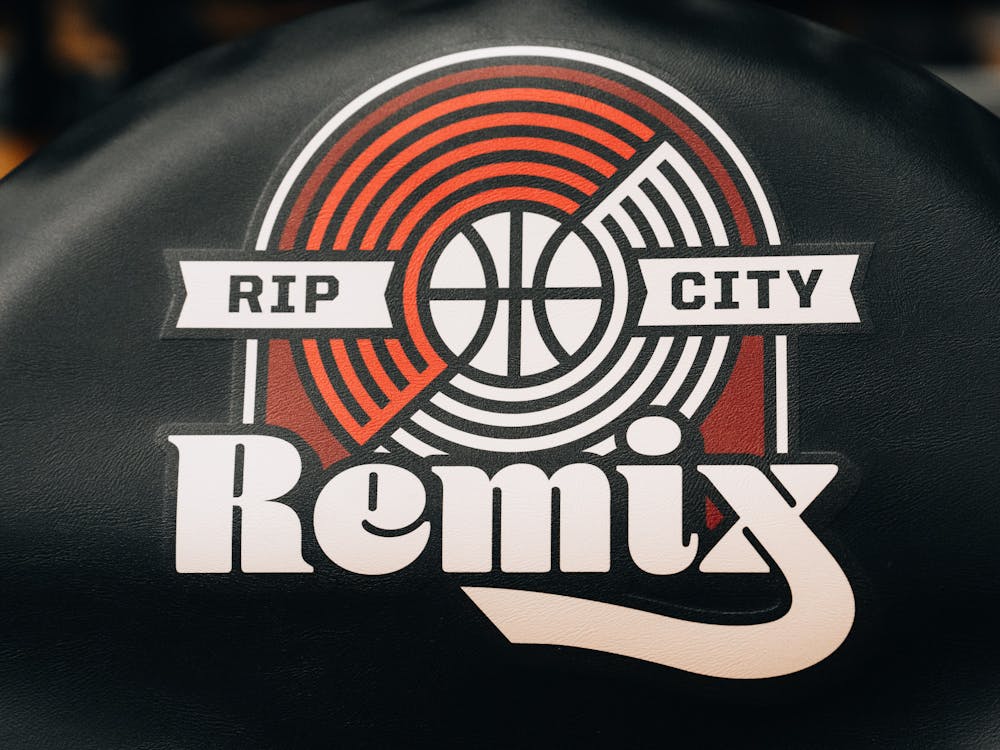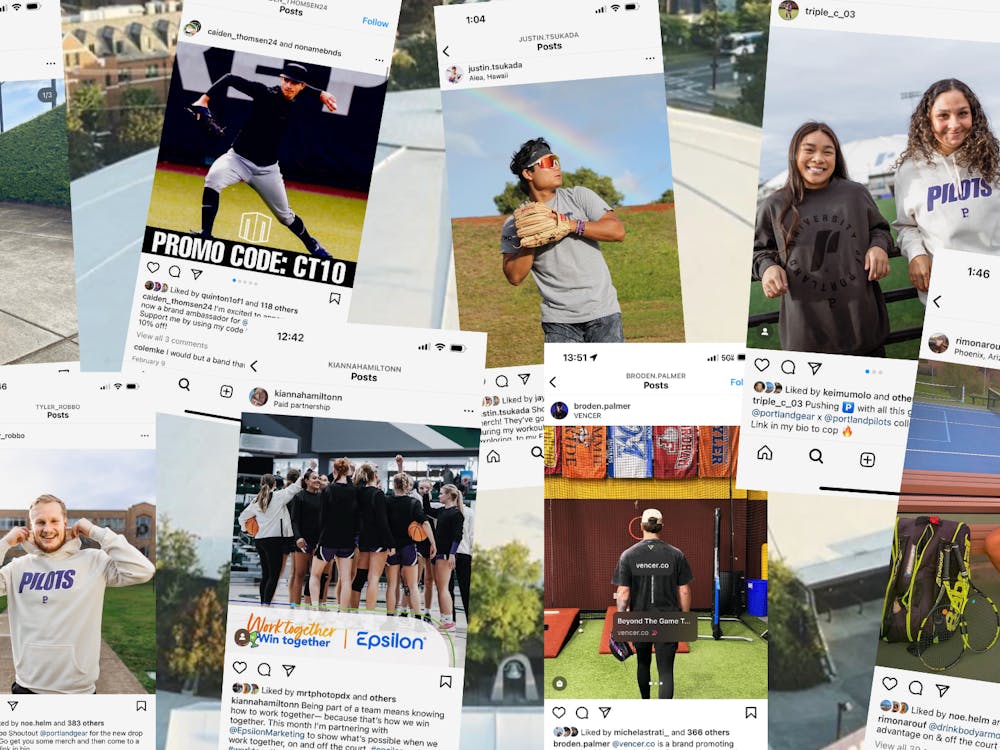Soft spoken, but humble. Passionate and loyal. He has been at the University of Portland for 19 years and in that time, he’s seen three basketball coaches come and go, legendary soccer coach Clive Charles win an NCAA title and Megan Rapinoe score goals on Merlo Field. When he started as the UP men’s tennis coach, current freshmen were either in diapers or a twinkle in their mother’s eyes.
Aaron Gross has made his mark on campus and on the dozens of young tennis players that he has coached. He’s given almost two decades of his life coaching tennis for UP, but remains under the radar. His goals are simple—forget the expectations, make the most out of bad losses and stay humble during the winning streaks.
But what has kept him here for 19 years?
“The University of Portland is a special place to work,” Gross said. “This is my job. It’s my passion. It’s my best friend. Aside from my family, this is the most important thing to me.”

Gross started playing tennis at 7-years-old and the sport has been a part of his daily diet ever since. He won two state championships in 1985 and 1987 while attending Portland’s Lincoln High School, he was the Pacific Northwest’s top-ranked junior in 1986 and its No. 2 ranked men’s open player in 1989. He went on to play number four singles at the University of Texas from 1987 to 1989 until he transferred to the University of Washington where he played number one singles from 1990 to 1992.
Now, he’s focusing on helping student athletes achieve their own goals. But coaching tennis at UP is not Gross’ full-time job. He also runs his own personal tennis camp, The Academy. Started in 1994, The Academy is Oregon’s first and only all encompassing year round tennis program tennis academy.
Gross has three kids—Jasmine, Mackenzie, and Gavin— but looks at his team as an extension of the family. He is constantly concerned with their studies, character and development. But he knows, too, that his players will grow up and soon leave the University of Portland to begin their own lives.
Redshirt junior Alex Wallace looks to Gross as a father figure.
“He’s more of a mentor to me than a coach,” redshirt junior Alex Wallace said. “To be honest, I don’t think I’d be here today if it weren’t for him. I’m not sure I’d even be walking on this Earth.”
In professional sports, an athlete could play for one team for a decade or more. Gross has only four years with his players.
“I rarely shed a tear when they leave because it’s more like they’re ready to move on and go somewhere else and I’m ready to bring someone new in and get to know them,” Gross said. “On the outside looking in, seeing players come and go would seem sad, but I know that we serve a purpose for each other so we make the most out of the time we have together.”

“It’s your worst nightmare,” Gross said of deLaubenfels’ death. “You hope nothing like that happens to you or your team. It’s definitely the hardest thing I’ve experienced as a coach by far.”
To Gross, the memory of deLaubenfels lives on. Some of the players on the current team were on the team when deLaubenfels was a senior. Gross believes that because they were able to see him play in his senior year, they will remember him for a long time and that he will still be a part of the team. The far court inside the Louisiana-Pacific Tennis Center will forever be named “Reid’s court.”
“His sense of humor, his energy and his love of life are the things that still feel alive here,” Gross said.
Tennis is more than a sport for Gross. It’s about the relationships, communication and humility.
“(Tennis) teaches you how to fail,” Gross said. “It teaches you how to lose. It teaches you to be resilient. You can’t keep going if you’re not resilient. The scoring system in tennis is such that you lose a lot. If you lose, it’s on you. If you win, you can enjoy it, but the reality of it is everyone learns quickly that there’s nowhere to hide. It’s on you.”
Gross just hopes that he will impact his players’ lives in meaningful ways.
“When I’m 80 years old, I’d love to get 25 letters from past players that tell me I made a difference,” Gross said. “I want to be remembered as someone who can say to my kids, ‘Your Dad made a difference in someone’s life.’”
Wallace says he will surpass 25 letters.
“That’s him being humble like he always is,” Wallace said. “He’ll be in the triple digits when it’s all said and done.”



